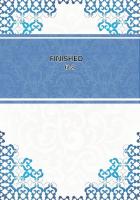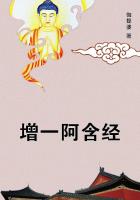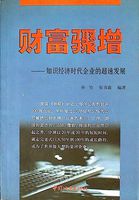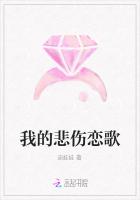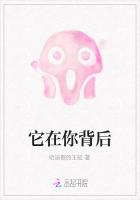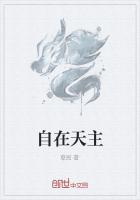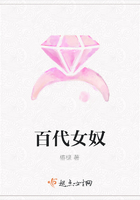And so Chaeredemus, he said, being other than a father, is not a father?
I suppose that he is not a father, I replied.
For if, said Euthydemus, taking up the argument, Chaeredemus is a father, then Sophroniscus, being other than a father, is not a father; and you, Socrates, are without a father.
Ctesippus, here taking up the argument, said: And is not your father in the same case, for he is other than my father?
Assuredly not, said Euthydemus.
Then he is the same?
He is the same.
I cannot say that I like the connection; but is he only my father, Euthydemus, or is he the father of all other men?
Of all other men, he replied. Do you suppose the same person to be a father and not a father?
Certainly, I did so imagine, said Ctesippus.
And do you suppose that gold is not gold, or that a man is not a man?
They are not 'in pari materia,' Euthydemus, said Ctesippus, and you had better take care, for it is monstrous to suppose that your father is the father of all.
But he is, he replied.
What, of men only, said Ctesippus, or of horses and of all other animals?
Of all, he said.
And your mother, too, is the mother of all?
Yes, our mother too.
Yes; and your mother has a progeny of sea-urchins then?
Yes; and yours, he said.
And gudgeons and puppies and pigs are your brothers?
And yours too.
And your papa is a dog?
And so is yours, he said.
If you will answer my questions, said Dionysodorus, I will soon extract the same admissions from you, Ctesippus. You say that you have a dog.
Yes, a villain of a one, said Ctesippus.
And he has puppies?
Yes, and they are very like himself.
And the dog is the father of them?
Yes, he said, I certainly saw him and the mother of the puppies come together.
And is he not yours?
To be sure he is.
Then he is a father, and he is yours; ergo, he is your father, and the puppies are your brothers.
Let me ask you one little question more, said Dionysodorus, quickly interposing, in order that Ctesippus might not get in his word: You beat this dog?
Ctesippus said, laughing, Indeed I do; and I only wish that I could beat you instead of him.
Then you beat your father, he said.
I should have far more reason to beat yours, said Ctesippus; what could he have been thinking of when he begat such wise sons? much good has this father of you and your brethren the puppies got out of this wisdom of yours.
But neither he nor you, Ctesippus, have any need of much good.
And have you no need, Euthydemus? he said.
Neither I nor any other man; for tell me now, Ctesippus, if you think it good or evil for a man who is sick to drink medicine when he wants it; or to go to war armed rather than unarmed.
Good, I say. And yet I know that I am going to be caught in one of your charming puzzles.
That, he replied, you will discover, if you answer; since you admit medicine to be good for a man to drink, when wanted, must it not be good for him to drink as much as possible; when he takes his medicine, a cartload of hellebore will not be too much for him?
Ctesippus said: Quite so, Euthydemus, that is to say, if he who drinks is as big as the statue of Delphi.
And seeing that in war to have arms is a good thing, he ought to have as many spears and shields as possible?
Very true, said Ctesippus; and do you think, Euthydemus, that he ought to have one shield only, and one spear?
I do.
And would you arm Geryon and Briareus in that way? Considering that you and your companion fight in armour, I thought that you would have known better...Here Euthydemus held his peace, but Dionysodorus returned to the previous answer of Ctesippus and said:--Do you not think that the possession of gold is a good thing?
Yes, said Ctesippus, and the more the better.
And to have money everywhere and always is a good?
Certainly, a great good, he said.
And you admit gold to be a good?
Certainly, he replied.
And ought not a man then to have gold everywhere and always, and as much as possible in himself, and may he not be deemed the happiest of men who has three talents of gold in his belly, and a talent in his pate, and a stater of gold in either eye?
Yes, Euthydemus, said Ctesippus; and the Scythians reckon those who have gold in their own skulls to be the happiest and bravest of men (that is only another instance of your manner of speaking about the dog and father), and what is still more extraordinary, they drink out of their own skulls gilt, and see the inside of them, and hold their own head in their hands.
And do the Scythians and others see that which has the quality of vision, or that which has not? said Euthydemus.
That which has the quality of vision clearly.
And you also see that which has the quality of vision? he said. (Note:
the ambiguity of (Greek), 'things visible and able to see,' (Greek), 'the speaking of the silent,' the silent denoting either the speaker or the subject of the speech, cannot be perfectly rendered in English. Compare Aristot. Soph. Elenchi (Poste's translation):--'Of ambiguous propositions the following are instances:--'I hope that you the enemy may slay.
'Whom one knows, he knows. Either the person knowing or the person known is here affirmed to know.
'What one sees, that one sees: one sees a pillar: ergo, that one pillar sees.
'What you ARE holding, that you are: you are holding a stone: ergo, a stone you are.
'Is a speaking of the silent possible? "The silent" denotes either the speaker are the subject of speech.
'There are three kinds of ambiguity of term or proposition. The first is when there is an equal linguistic propriety in several interpretations; the second when one is improper but customary; the third when the ambiguity arises in the combination of elements that are in themselves unambiguous, as in "knowing letters." "Knowing" and "letters" are perhaps separately unambiguous, but in combination may imply either that the letters are known, or that they themselves have knowledge. Such are the modes in which propositions and terms may be ambiguous.'
Yes, I do.
Then do you see our garments?
Yes.
Then our garments have the quality of vision.
They can see to any extent, said Ctesippus.
What can they see?

